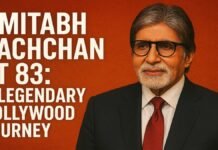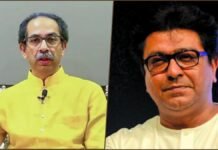
Mumbai: Atif Aslam, a popular Pakistani singer, is set to make a comeback in Bollywood after seven years of absence. He has been offered to sing a song for the upcoming film ‘Love Story of 90’, which is a romantic drama based on the lives of two lovers in the 1990s. The film is directed by Anurag Kashyap and stars Ranbir Kapoor and Alia Bhatt in the lead roles.
However, Atif Aslam’s return to Bollywood has sparked a controversy, as the Maharashtra Navnirman Sena (MNS), a regional political party led by Raj Thackeray, has strongly opposed it. The MNS has warned the filmmakers of Bollywood and other languages not to hire Pakistani artists and threatened to disrupt the release of the film if Atif Aslam’s song is included.
The MNS has been vocal against the presence of Pakistani artists in India, especially after the Uri terror attack in 2016, which killed 19 Indian soldiers and was blamed on Pakistan-based militants. Following the attack, the Indian Motion Picture Producers Association (IMPPA) imposed a ban on Pakistani artists, citing safety and patriotism. The ban affected several Pakistani artists, such as Fawad Khan, Mahira Khan, Ali Zafar, and Rahat Fateh Ali Khan, who had to leave India and cancel their projects.
Court ruling
However, in October 2023, the Bombay High Court lifted the ban on Pakistani artists, stating that it was unconstitutional and violated the right to freedom of expression and trade. The court said that opposing the artists of foreign and neighboring countries was not patriotism, but rather a form of discrimination and intolerance. The court also said that the ban did not serve any public interest, but rather harmed the cultural and economic ties between India and Pakistan.
The court ruling was welcomed by many Bollywood filmmakers and artists, who argued that art and politics should not be mixed and that Pakistani artists should be judged by their talent and not their nationality. Some of them also expressed their desire to work with Pakistani artists again and praised their contribution to the Indian film industry.
One of them was Arijit Singh, a famous Indian singer, who reportedly supported Atif Aslam’s return to Bollywood. Arijit Singh and Atif Aslam are considered to be rivals in the music industry, but Arijit Singh said that he respected Atif Aslam as an artist and a human being and that he hoped to collaborate with him in the future.
MNS reaction
The MNS, however, was not pleased with the court ruling and vowed to continue its protest against Pakistani artists. Amey Khopkar, the president of the Maharashtra Navnirman Film Sena, the film wing of the MNS, said that the MNS would not tolerate any Pakistani artist in India and that the filmmakers who were hiring them were betraying the nation and the martyrs.
Khopkar said that the MNS had a clear and consistent stand on this issue and that it would not change its position even if the court had given a different verdict. He said that the MNS would show the filmmakers their place and that they should not take the court ruling as a license to invite Pakistani artists.
Khopkar also challenged the filmmakers to record songs from Pakistani artists and release them in any language and said that no one should dare to accept this challenge. He said that the MNS would not allow any film with Pakistani artists to be screened in Maharashtra and that it would take all possible actions to stop them.
Khopkar also targeted Arijit Singh and accused him of being a traitor and a coward. He said that Arijit Singh was supporting Atif Aslam because he was afraid of losing his popularity and market. He said that Arijit Singh should be ashamed of himself and that he should learn from the example of Sonu Nigam, another Indian singer, who had refused to work with Pakistani artists.
Future scenario
The controversy over Atif Aslam’s return to Bollywood has raised questions about the future of the Indian film industry, and its relations with Pakistan. The film industry is one of the most influential and lucrative sectors of the Indian economy, and also a major source of cultural exchange and soft power. The industry has a large and diverse audience, both within and outside India, and has a significant impact on the public opinion and perception of India and its neighbors.
The presence of Pakistani artists in Bollywood has been a contentious issue for a long time, as it reflects the complex and often tense relations between India and Pakistan. The two countries have a history of conflict and rivalry and have fought four wars since their independence in 1947. They also have disputes over several issues, such as Kashmir, terrorism, water, and trade. However, they also share many cultural and historical ties and have a common interest in peace and stability in the region.
The Pakistani artists who have worked in Bollywood have faced both appreciation and criticism, depending on the political and social climate of the time. Some of them have been praised for their talent and professionalism, and have won awards and accolades. Some of them have also developed friendships and collaborations with their Indian counterparts, and have expressed their love and respect for India and its people. However, some of them have also faced hostility and harassment, and have been accused of being anti-national and pro-Pakistan. Some of them have also been banned or boycotted by certain groups and organizations, and have faced threats and violence.

The court ruling that lifted the ban on Pakistani artists has opened a new window of opportunity for the Indian film industry and for the cultural and artistic cooperation between India and Pakistan. However, it has also triggered a new wave of opposition and protest from some quarters, who see it as a threat to the national security and pride of India. The outcome of this controversy will depend on how the filmmakers, artists, and audiences of both countries respond to it, and how they balance their artistic and patriotic sentiments.



















































